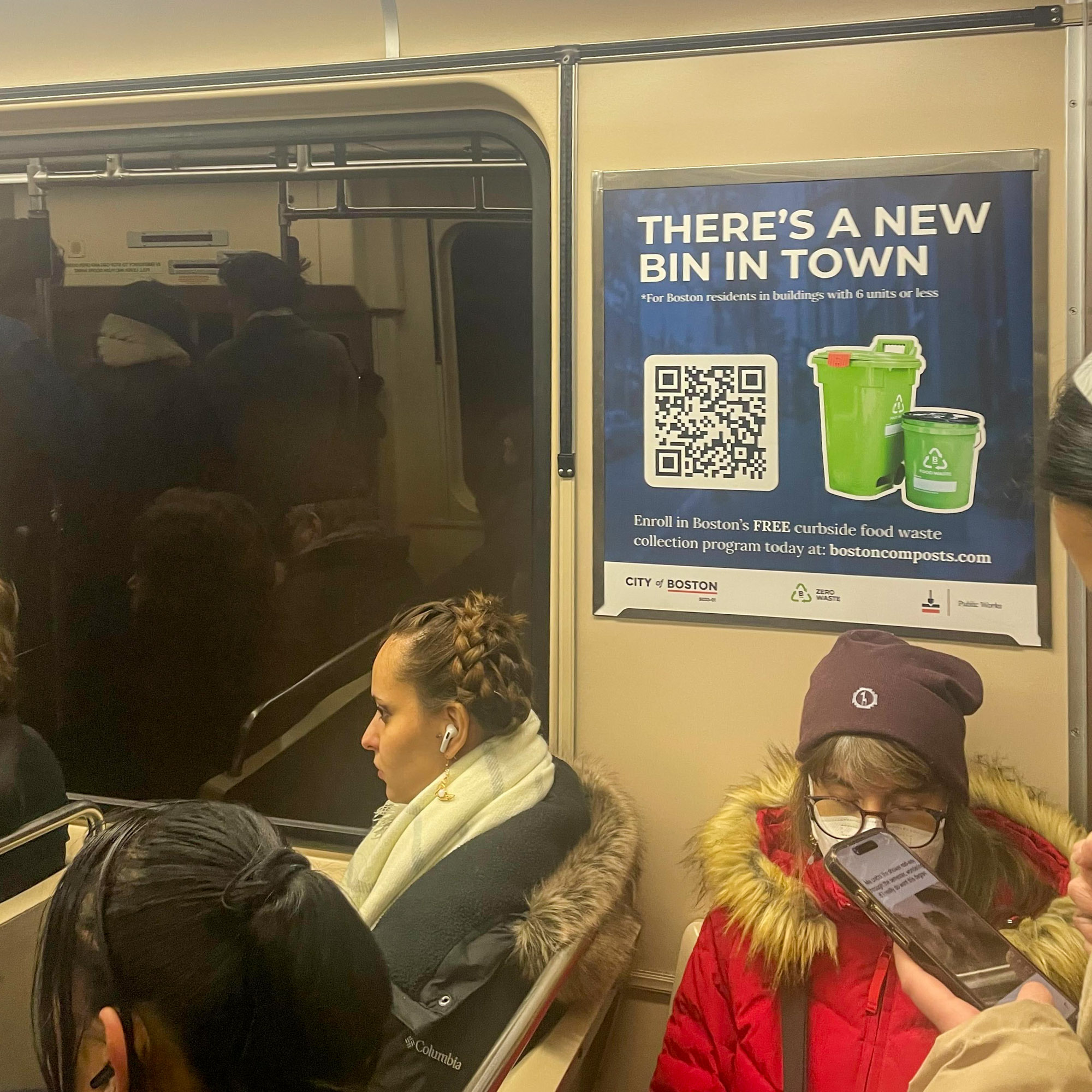The City of Boston launched new advertisements on public transit to promote its free curbside food waste collection service.

Garbage to Garden, Inc., a waste management company, partnered with the City in August 2022, collecting curbside food waste for free. Garbage to Garden transforms collected food scraps into nutrient-rich soil and clean energy.
Annika Schmidt, director of marketing communications at Garbage to Garden, said the program, which now serves 25,000 households, is expanding outreach efforts to increase participation.
Schmidt said the program reached the “initial group of early, eager adopters.” The next phase of outreach includes a “street team effort.”
The program began advertising through signs on and around public transportation in the city. Some of these advertisements feature QR codes that allow residents to access program information and sign up to participate.
Schmidt said some common concerns, such as fears about rodents, have surfaced in outreach efforts.
“Rodents are already a problem in the Greater Boston area,” Schmidt said. “We see the composting program as really a key tool to combat that.”
Schmidt said there is more room to “organically” grow their program’s outreach efforts.
“Hopefully, we’ll have more visibility around the city,” Schmidt said. “We have increasingly been doing compost giveaway events through the city.”
Grant Haas, a senior at Boston University studying earth and environmental science and secretary of the BU Community Gardening Club, said he has seen advertisements on the service but still sees room for improvement.
“It could be better advertised,” Haas said. “A lot of it has to do with composting education in general, rather than just the program.”
Haas, who is familiar with both the City’s composting initiative and other composting systems, said many still confuse backyard composting with industrial methods.
“A lot of misconceptions I see in backyard composting versus industrial composting, which is what the City does … you can put almost anything into industrial compost … which are normally excluded from just your backyard pile,” Haas said.
Sofia González Irigoyen, a junior at BU, said she had limited exposure to the initiative — learning about it through a newsletter from the BU Student Government. She said this program is not well-advertised.
“Having the RAs talk to residents and have them enrolled in it … could be a good option,” Gonzalez Irigoyen said. “There are definitely ways to do this.”
Douglas Cowell, a technician at Field Production Services at BU College of Communication, who lives in Swampscott, said he participates in a similar composting program called Black Earth.
“We found it to be very beneficial for cutting down our waste,” Cowell said. “But, also when it’s time to plant and everything, we have compost.”
For the Garbage to Garden program, Cowell said he has not seen much outreach in the city.
“Maybe I’m not seeing the stuff that people in the city are focusing on, but I haven’t heard about it,” Cowell said.


















































































































